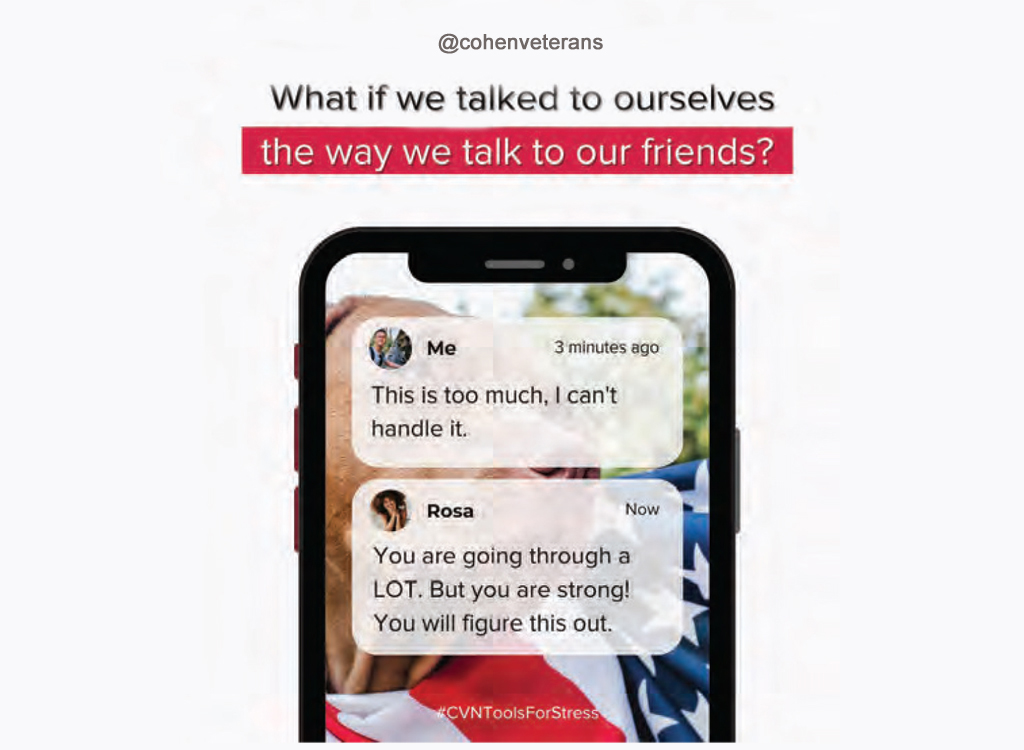By Kate Sullivan, Cohen Veterans Network
After serving 25 years in the Army and the Air Force, Dr. Anthony Hassan had a moment of consciousness a year into his veteran status. He noticed that his left arm was tired from carrying his briefcase to work every day. But for some reason, he simply wouldn’t switch it into his right hand. He wondered, “Why not?” Then it dawned on him. It’s because he had always needed his right hand free to salute.
For veterans, the transition out of military service can come with everything from simple realizations to overwhelming challenges. Each year approximately 200,000 men and women transition out of U.S. military service and return to life as civilians. About half of post-9/11 veterans report it was somewhat (32%) or very (16%) difficult for them to readjust to civilian life after their military service. Some mental health challenges experienced by this population include anxiety, depression and post-traumatic stress disorder (PTSD). Some 29% of Iraq and Afghanistan War veterans will experience PTSD in their lifetime.
Today, Dr. Hassan helps veterans overcome such obstacles as president and CEO of Cohen Veterans Network (CVN), a national not-for-profit network of mental health clinics for post-9/11 veterans, active-duty service members and their families.
“Major life events can bring about big change, which is something we all experience,” says Dr. Hassan. “In our clinics we see firsthand how the transition to civilian life can impact some veterans. The loss of camaraderie and purpose, struggles with employment and the uncertainty of what lies ahead; such experiences can intensify stress and worry. But within every challenge lies opportunity for personal growth.”
As veterans navigate the transition, there are some strategies they can employ from CVN’s Tools for Managing Stress & Worry, a free, self-paced online workshop developed for military families to help support their mental health and well-being:
How Do I Talk to Myself?
Sometimes we think things to ourselves that we would never say to a friend. For example, if you’re experiencing employment challenges, you might think to yourself, “This is too much, I can’t handle it.” But would you ever say that to a friend? No, because it would be unhelpful, hurtful or too harsh. Instead, you might say, “You are going through a lot. But you are strong. You will figure it out.” Practice talking to yourself like you would talk to a friend—it’s a powerful way to shift unhelpful thinking patterns.
Break the Cycle of Worry
Our thoughts impact the way we feel and how we behave. Identifying and challenging ineffective thoughts can help break the cycle of worry. These questions can help us to determine if our worry thoughts are rational or useful:
Is this thought based on fact?
Is there another possibility or explanation?
What is the possible outcome?
Will it matter six months from now? What about a year?
What is the most likely situation?
Don’t Just Unplug, Recharge
When our battery is running low, we might turn off the phone to save the little charge we have left. Turning off is important and useful in the short run, but it isn’t the same as re-charging. Turning off might be watching TV or scrolling through social media. While recharging is engaging in activities that are not only pleasurable but also important or meaningful to you. That could be calling a friend, hiking or being in nature, or making a list of things you’re grateful for. Recharging aligns with your values, and it’s different for everyone.
Dr. Hassan adds, “We can all use support and guidance at times in our lives. For some veterans, that time could be during their transition from military service. Anyone in need of mental health support should reach out for help. It can have a profound impact, helping to foster a happy, healthy and fulfilling life.”
For more information, visit cohenveteransnetwork.org.


